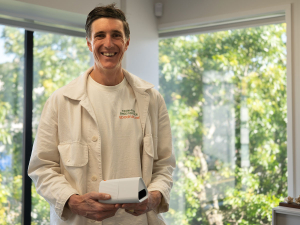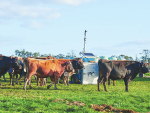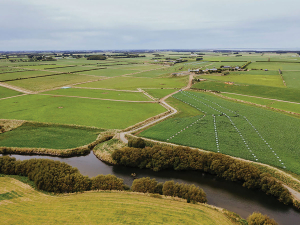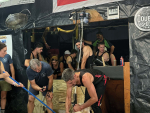“Kiwi companies have always been nimble but with so much uncertainty in global trade, they need to be able to pivot quickly, and adapt to make the most of new opportunities,” he says.
Coleman says one of the reasons New Zealand exporters have been successful in the past is their willingness to take on and manage risk in a way that other export companies, based in more scalable markets, haven’t had to.
“As one door closes, they are always looking for another that might be opening,” he says. “Being flexible and agile, and having an open mind is really important, especially in the current environment.”
Coleman points to one local company, Wellington pest trap company Goodnature, that is seeing a potential silver lining from current trade uncertainty.
Goodnature ships over a quarter of its smart rat and mouse traps to the US and believes higher tariffs on other countries could give its NZ-made products a competitive edge.
“Many of our competitors manufacture in China, Taiwan, or Vietnam, where tariffs are higher. Very few produce in the US and even those that do, they source a lot of their components from abroad," Goodnature CEO Dave Shoemack says.
Read More:
“That means that if they end up with higher tariffs than us, there could be opportunities for us, as our price could become relatively more competitive.”
Last year, the company produced a record 100,700 traps and saw significant growth in US sales, especially via its website and through e-commerce.
Selling its traps through US-based distributors, Goodnature’s products now face a 10 per cent import tariff, but the company is confident it can turn this into a growth opportunity.
“We sell our products to partners in the US, who then on-sell them, so the tariffs don't hit us directly, but it will impact our distribution partners. In saying that we’re also seeing new toxin regulations across many US states, making our toxin free and humane solution relatively more attractive” says Shoemack.
Goodnature’s recent growth in US sales is largely the result of bringing to market a new consumer-targeted smart mouse trap.
Research and development of the new trap was partly financed by ANZ New Zealand, which also supported Goodnature’s move into a new and larger Wellington factory and HQ.
“Being able to scale up production quickly is vital for our manufacturers, especially if they are selling their products into large global markets,” Coleman says.
“They can’t afford to miss an opportunity, so partnering with other New Zealand export companies, as Goodnature has, can be a real advantage.”
A significant part of Goodnature’s global distribution is handled by established Waikato-based company Gallagher Animal Management, which also owns just under 25 percent of the company.
This gives the trap maker access to over 100 countries, including New Zealand, Australia, the US, Canada, South America, and beyond.
“They know how to get things into the right places, the right shops, the right distributors, so it was a very logical collaboration from our side " Shoemack says.
Before partnering with Gallagher, Goodnature's expansion was primarily organic.
Teaming up with Gallagher allowed it to adopt a more strategic approach, giving its financial backers, including ANZ, even greater confidence in the business.
"We knew we’d only scratched the surface,” Shoemack says. “We had our new mouse trap in development and with Gallagher we could see that we’d be able to access more channels and markets, significantly boosting our reach.”
Shoemack saw that partnering with Gallagher was a logical fit for both businesses.
“We are both New Zealand-owned and based; we both have hardware and an increasing number of software products, and we’ve both largely kept our manufacturing here in New Zealand.”
This strategic fit was further strengthened by having Gallagher's Animal Management CEO Lisbeth Jacobs sitting on Goodnature’s board.
“Even before the US tariffs came along, I was very much a proponent of making stuff here in New Zealand,” Jacobs says.
“Having full control of your manufacturing process, being able to spin up new designs quickly and try them out, as well as assure the quality of what you make—this is really valuable.”
“Covid taught us the importance of having resilient supply chains, and now more than ever, in a world that's geopolitically a lot less predictable, flexibility and agility are critical.”



















